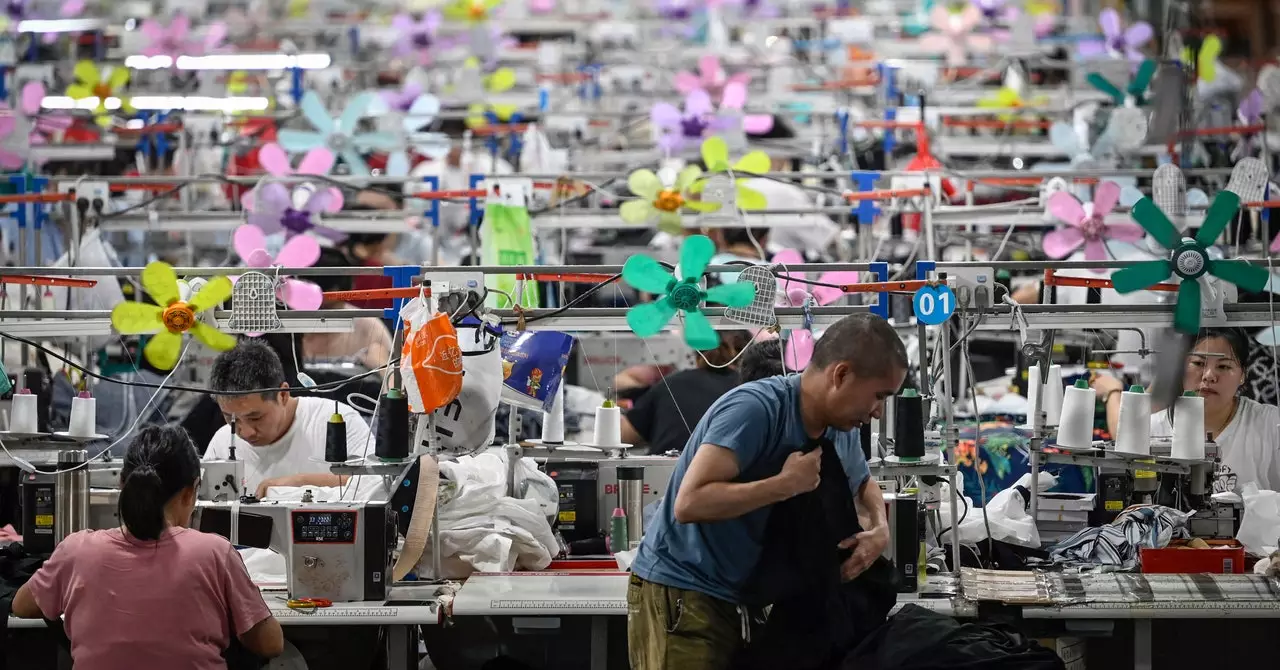In the contemporary fashion landscape, few names resonate as powerfully as Shein. The fast-fashion behemoth has transformed the way consumers perceive clothing, delivering an endless stream of inexpensive and trendy apparel to millions across the globe. In 2023 alone, Shein extended its reach to over 150 countries, with every transaction and shipment leaving a digital fingerprint of consumer behavior and preferences. As online influencers showcase their latest finds through viral “#sheinhaul” videos, the brand’s visibility explodes, racking up billions of views and spearheading a cultural shift in consumer expectations regarding fashion affordability and access.
However, the impressive speed of Shein’s operations comes at a notable cost—environmental sustainability. The company’s business model hinges on efficiency, utilizing proprietary artificial intelligence (AI) technologies to analyze data and predict fashion trends in real time. This technological backbone permits Shein to not only respond to current consumer demands rapidly but also anticipate future desires, supposedly making it a leader in agile retail. Yet, amid this whirlwind of creativity and consumption lies an emergent debate about the ecological repercussions of such an aggressive growth strategy.
The integration of AI in fast fashion has created a paradox. On one hand, machine-learning applications facilitate the expeditious creation of what is often referred to as “ultra-fast fashion.” Shein can reportedly conjure a garment from concept to retail in as little as 10 days, a feat that brokered a staggering revenue of over $30 billion for the company in 2023 alone. Yet, this surge in productivity invites scrutiny, particularly regarding the environmental toll of such practices.
Critics argue that the acceleration enabled by AI may amplify carbon footprints rather than mitigate them. A recent sustainability report from Shein revealed that the company’s carbon dioxide emissions nearly doubled within one year, sparking uproar among climate advocates. The findings may underscore the notion that fast fashion is fundamentally at odds with sustainability, as ultra-fast production cycles generate substantial waste and increased resource consumption. The consequences of rapid manufacturing can be dire, with Shein emitting a staggering 16.7 million metric tons of CO2 in 2023—a figure paralleling the impact of four coal power plants operating over the same period.
Despite the burgeoning environmental concerns, Shein has made pledges to tackle its emissions, promising a 25 percent reduction by 2030 and aiming for net-zero emissions by 2050. Yet, these commitments often provoke skepticism among environmentalists. The inherent challenges of reconciling a business model predicated on rapid mass production with sustainability goals raise difficult questions.
Sage Lenier, the executive director of Sustainable and Just Future, highlights the tension between emerging technologies and ethical production. She emphasizes that models like Shein’s and its competitive peer, Temu, thrive precisely because of these technologies. The integration of AI appears to fortify a system already criticized for its exploitative labor practices and significant textile waste, further silencing demands for systemic change within the industry.
The fast-fashion industry, epitomized by Shein, must now confront the environmental and ethical dilemmas it has fostered. The consequences of this pandemic of consumption extend beyond CO2 emissions. Shein and similar companies are increasingly linked to microplastic pollution and the prevalence of textile waste, which pose dire threats to ecosystems and public health.
Moreover, the low price tags that define Shein’s appeal come at a cost—a reality intertwined with exploitative labor practices that perpetuate cycles of poverty and inequality. As consumers, while we revel in affordable fashion, it becomes imperative to question the integrity of our choices and their long-term ramifications on both the planet and people.
As the dust settles from the meteoric rise of companies like Shein, a clarion call for accountability reverberates throughout the fashion industry. The dual challenges of sustainability and ethics compel both corporations and consumers to rethink their roles in a system defined by excess and disposability. While Shein’s formidable presence may dictate trends, it is up to society as a whole to steer the burning conversation towards more sustainable practices, a fair labor market, and ultimately, a more responsible approach to fashion consumption.

